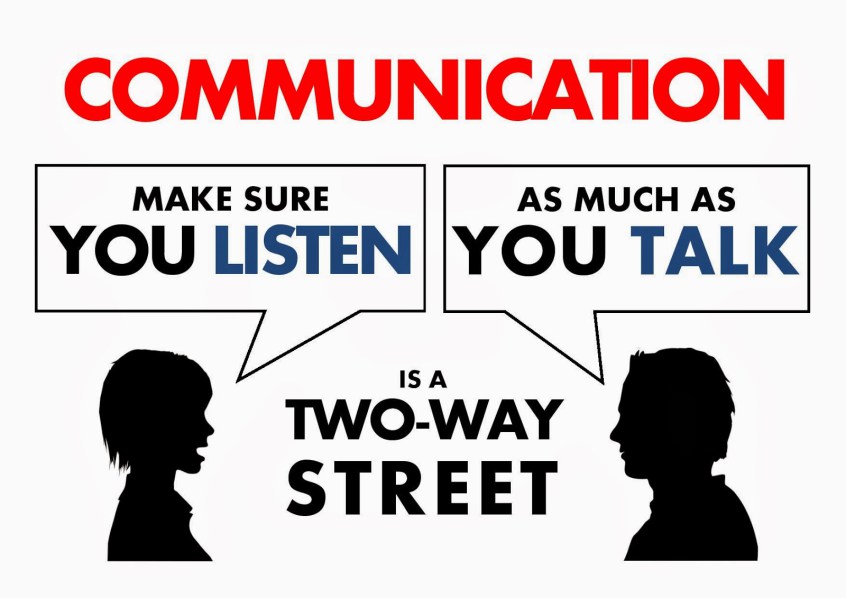Communication Is A Two-Way Street In Marriage
Posted on

Often times, the success or failure of a marriage can be traced to the couples’ ability to communicate. A spouse may hold feelings in, creating an emotional distance between they and their partner. Another spouse may shut down conversations by negative interruptions of criticism or anger. In a relationship that isn’t working, both partners need to work on their communication skills. Here are a few suggestions to have more mutually satisfying communication in your marriage.
Don’t Dominate the Conversation
Every marriage is different and not every marriage consists of one dominant partner and one submissive partner. Each partner can be both dominant and submissive depending on the situation. For instance, if one partner is very mechanically inclined they would likely be more vocal or dominant in matters that required buying or repairing a car, appliance or anything mechanical. However, that same partner may not be comfortable with financial matters, so they would likely not be vocal or dominant in financial issues.
While it makes sense to listen to someone with expertise in certain areas, in a marriage, both partners need to weigh on with their opinions. That may mean that even though one spouse does not have expertise in mechanical or financial matters, they still should be allowed to voice their opinion or thoughts on those matters.
Don’t Immediately Shut Down Conversation
Immediate Shut Downs happen when we begin conversations with our spouse with criticism, accusations, or questions that put the other person on the defensive before healthy communication can take place. Example: When her husband walks into the house, a wife’s first words are: “Why didn’t you put the garbage cans out this morning like I asked you to? The garbage truck has already gone and the cans are overflowing. Can’t I rely on you to do anything?”
You can still get your point across by communicating the issue in a more loving, positive manner. Example: “Hi honey, I’m glad you are home. I think we might have missed the garbage pick up this morning because the trash can still some pretty full. Maybe we can think of a way to make sure we don’t miss the pick up. What do you think?” Stating the issue in a non-confrontational way and asking their input for a solution draws your spouse into the conversation and allows them a chance to participate equally.
No Name Calling
When you introduce name calling in to the conversation, you are attacking a person’s character. When a person feels like they are being attacked, their natural reaction is either to defend themselves or find the quickest way to exit. Example: “You would have to be an idiot not to know that you cannot put just any kind of oil in the car. Did you even take the time to look in the owner’s manual?”
Even though you may be angry with your spouse for what they did, it does not give you a license for verbal abuse. Before you talk to your spouse about an issue that has upset you, take some time to cool down so that you can communicate your concerns in a calm, respectful manner. Remember, you married this person because you love them and you want to continue in this marriage. You can hate what a person did but not hate the person.
Don’t Check Out
Some people have a hard time expressing their emotions or talking freely. They may fear that doing so will bring rejection from their partner, criticism or some other form of penalty. As a result they keep their feelings bottle up and look for ways to avoid confrontation. When one spouse tries to initiate a conversation about an issue, the other spouse may get busy doing something or focus their attention on the TV. In essence, they have checked out of the conversation.
Bottling up feelings is like a pot on the stove. Eventually that pot will boil over. Eventually, your feelings will surface and explode in an unpleasant manner and your spouse will have no idea what happened or why. It is much healthier to deal with issues and feelings when they happen. Whether those issues or feelings are because of your spouse or about something external to your marriage, you need to share them with your spouse.
Marriage is a two-way partnership and the only way that each of you can know what the other is thinking or feeling is to learn to communicate effectively.
Learn more about our Couples Therapy Exercises